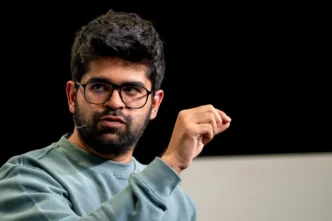The Academy of Motion Picture Arts and Sciences has officially addressed the presence of generative AI in the film industry through new rules for the Oscars awards. In a significant move, the Academy included generative AI in its eligibility guidelines, marking the first time such technology has been explicitly recognized. Rather than imposing strict limitations or mandating disclosure, the Academy has taken a more nuanced approach: AI won’t automatically affect a film’s eligibility, but how it’s used could impact whether it gets nominated or not.
A new section added to the film eligibility rules outlines the Academy’s position: “With regard to Generative Artificial Intelligence and other digital tools used in the making of the film, the tools neither help nor harm the chances of achieving a nomination. The Academy and each branch will judge the achievement, taking into account the degree to which a human was at the heart of the creative authorship when choosing which movie to award.”
This update reflects a careful balance between embracing new technologies and maintaining the core value of human creativity in filmmaking. The Academy has made it clear that human involvement remains central to artistic recognition.
Creative Control Still Key in the Age of AI: Oscars
The Academy’s statement stops short of regulating or requiring transparency about AI usage in filmmaking, although The New York Times reports that the organization considered doing just that. The decision not to require filmmakers to disclose their use of AI suggests the Academy is still navigating the complex ethical and creative questions surrounding the technology.
This new rule arrives in the wake of major Hollywood strikes in 2023, where both actors and writers expressed deep concerns about the rise of generative AI. Many feared that the unchecked use of AI tools could threaten jobs, devalue human creativity, and disrupt traditional production roles. With those strikes still fresh in the industry’s memory, the Academy’s cautious yet open stance is seen as an attempt to address both sides of the debate.
By emphasizing that nominations will be judged based on “the degree to which a human was at the heart of the creative authorship,” the Academy underscores that while technology may assist the process, it is the human contribution that defines artistic merit. This decision could influence how filmmakers integrate AI into their workflows going forward, knowing that its presence must still be secondary to the creative vision and execution of the human team.
Voting Requirements and the Honor System
The Academy’s rule changes didn’t stop at AI. Another notable update affects how Academy members vote during the final round of Oscar nominations. Moving forward, members will only be allowed to vote in a particular category if they’ve watched all of the eligible films in that category. While this may help ensure fairness in the selection process, it’s important to note that the rule relies on the honor system. Voters are asked to self-certify that they have seen all the films, but there’s no enforcement mechanism in place to confirm compliance.
This tweak is intended to promote informed voting, ensuring that nominated films are being judged by individuals who have actually seen all the contenders. However, it may also raise questions about accountability and whether such rules can truly guarantee a fair evaluation process without formal checks.
Overall, these changes reflect the Academy’s effort to stay current with emerging technologies and evolving industry standards, while still holding fast to the principles of human-led creative excellence.













